Julia Quinn
Julia Quinnon Jan 05, 2021
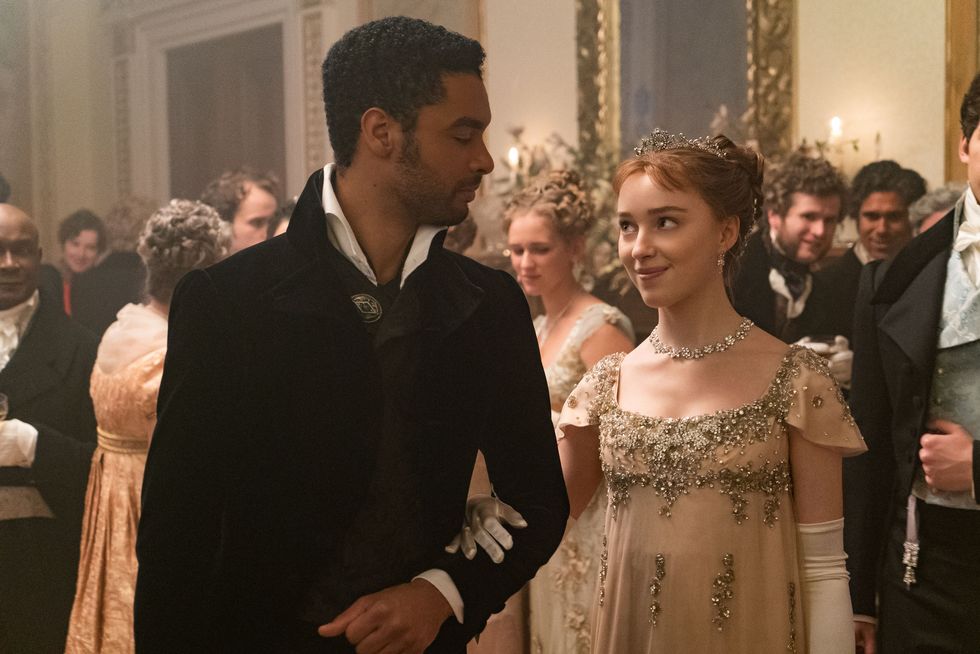
It's been four years since author Julia Quinn first got a phone call from Shondaland about her popular series of romance novels—but she still can't quite believe the Bridgertons, the family that anchors her story of love in gossip in Regency-era England, are on Netflix. It's just amazing, she says. You want to say it's crazy, and it's not crazy, but I can't believe it's happening.
Ahead of the show's premiere on Christmas Day, Quinn spoke with T&C via Zoom about the adaptation process, revealing Easter eggs that only book readers will notice in the episodes, and sharing her surprise at learning the show would unveil Lady Whistledown's identity at the end of season one.
Why do you think romance novels traditionally haven't been adapted for TV, and what are you hoping Bridgerton does for the genre?
At a very basic level, there is still a prejudice against the genre. It's long been looked down upon as trashy books, stories you have to pretend you don't want to read. At its core romance is, and long has been, a genre that is almost exclusively written by women, read by women, edited by women, and it's become something that society can look down upon.
So you've got this ugly stepchild of literature, and nobody's really looking at it for adaptation. People want the edgy thing, the high literature. And if somebody does want to do something that really has the same feel that romance brings, then they'll say, Well, we'll do Jane Austen, because she's a classic and that's prestige and she's wonderful. And I'm there for every Austen adaptation, but there have been a lot. People weren't looking to romance novels for source material.
I think all of those things tie into it, but as for why it’s happening now? It's all about Shondaland. I still don't exactly know how Shonda Rhimes came to have my books in her hands. But the story, as I know it, is that she was reading them and got hooked on the series and loved them and wanted to make a show out of it.
She's a visionary and she's a born storyteller. She's absolutely brilliant. And she saw potential there to say, Wait a minute, this would be a great show. Why isn't anyone doing this? And that's been her whole career, asking these Why not? questions. So it doesn't surprise me that she's the one who basically said, Why not? about this.
You're a consultant on the show. What has your involvement been like?
I was really there to answer questions that they had, and there were a number of questions about the intricacies of how British titles work, certain societal questions. But I really felt that I know books; I don't know TV. And these people know TV. They were all so brilliant, so I said, I'm not going to interfere. Come to me with questions. And if I see something that alarms me, I'll speak up.
But I didn't expect anything to alarm me and nothing did. One of the writers contacted me at one point and said, I can't believe how hands-off you are. It's like putting your baby up for adoption or something. And I said, Well, I don't know about that. But I really felt like it was in such good hands that I didn't need to micromanage in any way.
There are some changes from the books. How do you feel about them?
There's nothing I don't like and I swear I'm not just being a cheerleader. There are few things that I would have loved to have maybe seen a little more of, but again, I understand that it's a different medium, there are different things you can do.
There's one scene in the book that didn't quite make it in, and that's actually something I wrote to them about. I said, This was a really special moment, and they were able to put in a reference to it. In the book, the first time Simon brings Daphne flowers, he brings her flowers and he brings them for her mother. That is one of the very few things in my books that's actually modeled on my real life. So that didn't make it in, but when I said something, they made mention that he brought flowers for both of them.
So there are a few things like that that I would have liked to see in it. But I think all the changes are amazing. The biggest changes are some new characters. Queen Charlotte is the biggest new character and she's fantastic in every way. I go back and forth between: Wow, I wish I'd put her in the books.” And: “I'm glad I didn't put her in the books because I wouldn't have done her as great as they do her here.
She's amazing and adds a little more framework to the piece in how the story is told. The mystery of who Lady Whistledown is also bigger in the show than it is in the first book of the series, and Queen Charlotte's role really heightens that because she's obsessed.
I know fans will be surprised that Lady Whistledown is revealed at the end of season one because that is very different from the first book.
I'm watching the rough cuts and all of a sudden at the end, I was like, What?! I had no idea. It was really funny, my reaction. I thought it was a secret, and I think I ended up emailing Caitlin [Scott, who works at Shondaland] in all caps: I HAVE QUESTIONS.
Are there Easter eggs in the show that fans of the books will notice?
Oh, yes. Definitely. The writers have clearly gone through all eight books with a fine-tooth comb and are clearly setting up things for—fingers crossed—more seasons. And there are definitely little references that will be fun for readers, but also potentially set things up for the future. The first season follows the story of The Duke and I, but the writers didn't just read that one book, they read the whole series.
For example, in the second book of the series, The Viscount Who Loved Me, there is what is quite possibly the readers’ favorite scene of all time in any book I've ever written, which is Bridgerton Pall Mall. Pall Mall is like a croquet, and the Bridgertons play croquet like it's a blood sport, super competitive. They certainly don't set it up like a standard thing. They put the wickets in the hardest possible places you can get to. There are a few mentions about that in the show.
And also the bumblebee. You occasionally see a bumblebee and all the readers know the significance of a bee, but there's nothing in the first book or season that would tell you what that means. Anytime readers see a bee, they'll know what it's about.
This story essentially revolves around the lack of sexual education for women in this community during this time period. There's a great scene where Claudia Jessie as Eloise asks something like “How do you get pregnant, and how can I not?”
When she walks in and says, How does a woman come to be with child? I just die. She steals every scene she's in, but that [lack of education] was a very real thing. And that's really at the heart of what happens in this story. If Daphne had had knowledge, everything would have come out differently. And so, this is an example of a plot that hopefully you couldn't write in present day because hopefully nobody would keep an adult in that much ignorance. But that was fairly common for women to have zero knowledge going into marriage [during the 1800s].
I think it’s a unique plot in that you've got this coming together of a woman who is very intelligent but lacks information and a man who withholds some information.
A lot of people are upset with how she treats him. But on the other hand, if he hadn't withheld this information, would she have been such a willing participant, an eager participant in the sexual relationship? I don't know. I mean, she probably would have been like, Wait a minute. This isn't what I thought was happening and I'm angry. These are two people who both end up doing something wrong to the person that they love, but they do work it out.
It is interesting. People nowadays are much less patient with Daphne's actions than Simon's. When the book first came out, it was reversed. And I think that has a lot to do with the times that we live in, both in terms of our increased understanding of consent, but also I think, women have a lot more agency over their own lives. We're not where we should be, but we do. And I think it becomes harder to identify with the powerlessness of a woman in 1813. Daphne is a duchess. She's one of the most powerful people in the country now, but at the same time in her marriage, the power imbalance is huge.
You've said you weren't involved with the casting process, but what was your first impression when you learned who was going to play Daphne and Simon and the other characters?
I loved it. I was not super familiar with the cast—well, except for Julie Andrews. So, I was like everyone else. I was frantically Googling them and looking them up, and as soon as I would see a clip or a smile, I'd see it. I think they're all brilliant.
And I love the way that Chris and the whole Shondaland team have re-imagined Regency society with this idea that many historians think Queen Charlotte was biracial. What if this was actually accepted at the time, and she used her position to elevate other people of color. What would society look like then?
So it's a re-imagining of history, but it's a re-imagining of history that's not a complete fantasy. Within that framework, it works beautifully. You just see this wonderful cast of people and the actors are so incredibly talented. I always say, Phoebe can do more with her eyes than most people can do with words. And then Regé, if Phoebe has the eyes, he's got the brows, man. He can lift a brow and you're just like, Ooh, swoon. So there are the moments when he's this dashing duke and then every now and there's a moment where you can see him bring that little boy forth and you see it in his eyes, that hurt little boy. And then, every time Penelope looks at Colin, your heart breaks. Source: Town & Country


.jpg)






.jpg)

.jpg)
.jpg)
.jpg)
.jpg)
.jpg)



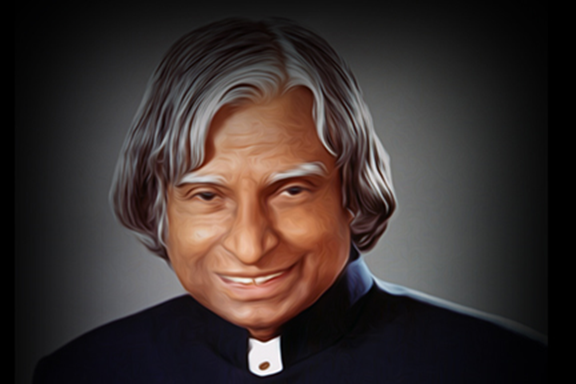
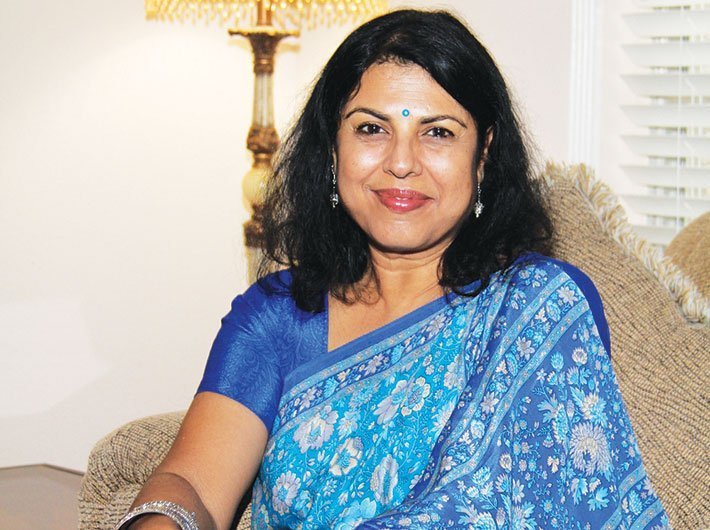
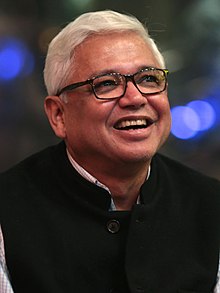
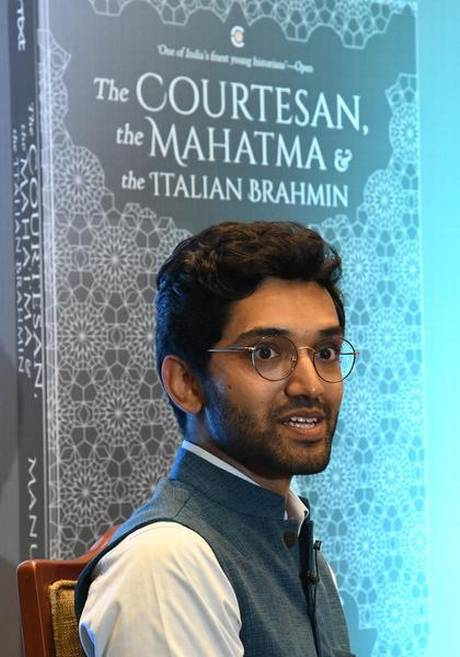
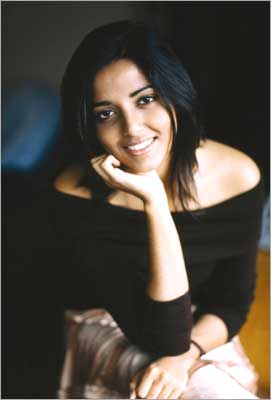


Sorry! No comment found for this post.